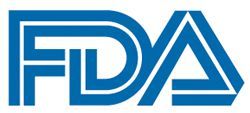Article
FDA Approval Sought for Adjuvant Nivolumab for Completely Resected Stage IIB/C Melanoma
Author(s):
The FDA has accepted the supplemental biologics license application for nivolumab as an adjuvant treatment for patients with completely resected stage IIB or IIC melanoma.

The FDA has accepted the supplemental biologics license application for nivolumab (Opdivo) as an adjuvant treatment for patients with completely resected stage IIB or IIC melanoma.1
Additionally, the European Medicines Agency (EMA) has validated the type II variation marketing authorization application for nivolumab in the same indication.
The applications were supported by data from the phase 3 CheckMate76K trial (NCT04099251), which showed that nivolumab generated a statistically significant and clinically meaningful benefit in recurrence-free survival (RFS) compared with placebo, reducing the risk of recurrence or death by 58% (HR, 0.42; 95% CI, 0.30-0.59; P < .0001).2 At a prespecified interim analysis, patients treated with nivolumab experienced a 12-months RFS rate of 89% (95% CI, 86%-92%) compared with 79% (95% CI, 74%-84%) for those treated with placebo.
“Melanoma can be a devastating diagnosis, and patients with stage IIB or IIC melanoma tend to be at high risk of disease recurrence. Approximately one third of stage IIB and half of stage IIC patients experience recurrence within five years after surgery,” Gina Fusaro, PhD, vice president, development program lead, Bristol Myers Squibb, stated in a news release.1 “The data from the CheckMate76K trial demonstrate the benefit that [nivolumab] can have for patients with this earlier stage of cancer. We look forward to working with the U.S. FDA and the EMA to potentially offer a treatment option to patients with stage IIB or IIC melanoma that could help prevent recurrence.”
Investigators for the randomized, double-blind CheckMate76K study enrolled patients with previously untreated, histologically confirmed resected stage IIB/C cutaneous melanoma.3 Patients were also required to have a negative sentinel lymph node biopsy and an ECOG performance status of 0 or 1.
Key exclusion criteria included a history of ocular or mucosal melanoma, pregnant or nursing women, active known or suspected autoimmune disease, or prior treatment with an anti–PD-1, anti–PD-L1, anti–PD-L2, anti-CD137, or anti–CTLA-4 antibody, or agents that target IL-2 pathways, T-cell stimulators, or checkpoint pathways.
The study enrolled 790 patients who were randomly assigned to received 480 mg of nivolumab or placebo every 4 weeks for up to 12 months.2
RFS served as the trial’s primary end point. Key secondary end points included overall survival, distant metastases-free survival, progression-free survival on next-line therapy, and safety.
Additional data showed that the 12-month RFS rates among patients with stage IIB melanoma were 93% for nivolumab and 84% for placebo. Among patients with stage IIC melanoma, the 12-month RFS rates were 84% and 72% for nivolumab and placebo, respectively.
The RFS benefit was observed across predefined subgroups in the trial, including T category and disease stage.
Regarding safety, data were consistent with previously reported studies of nivolumab, and no new safety signals were reported. Ten percent of patients in the nivolumab arm experienced grade 3/4 treatment-related adverse effects (TRAEs) compared with 2% for those in the placebo arm. TRAEs led to treatment discontinuation in 15% of patients in the nivolumab arm and 3% in the placebo arm.
References
- U.S. Food and Drug Administration accepts Bristol Myers Squibb’s supplemental biologics license application and European Medicines Agency validates application for Opdivo (nivolumab) …. News release. Bristol Myers Squibb. February 28, 2023. Accessed February 28, 2023. https://news.bms.com/news/
- Bristol Myers Squibb presents data from CheckMate -76K showing Opdivo (nivolumab) reduced the risk of recurrence or death by 58% versus placebo in patients with completely resected stage IIB or IIC melanoma. News release. Bristol Myer Squibb. October 19, 2022. Accessed February 28, 2023. https://news.bms.com/news/
- Effectiveness study of nivolumab compared to placebo in prevention of recurrent melanoma after complete resection of stage IIB/C melanoma (CheckMate76K). ClinicalTrials.gov. Updated January 13, 2023. Accessed February 28, 2023. https://clinicaltrials.gov/ct2/show/NCT04099251








